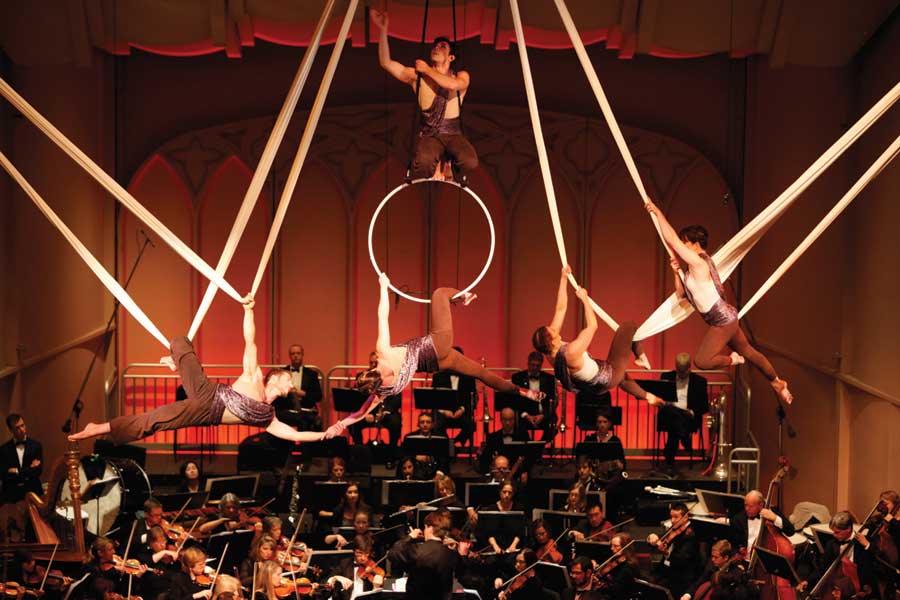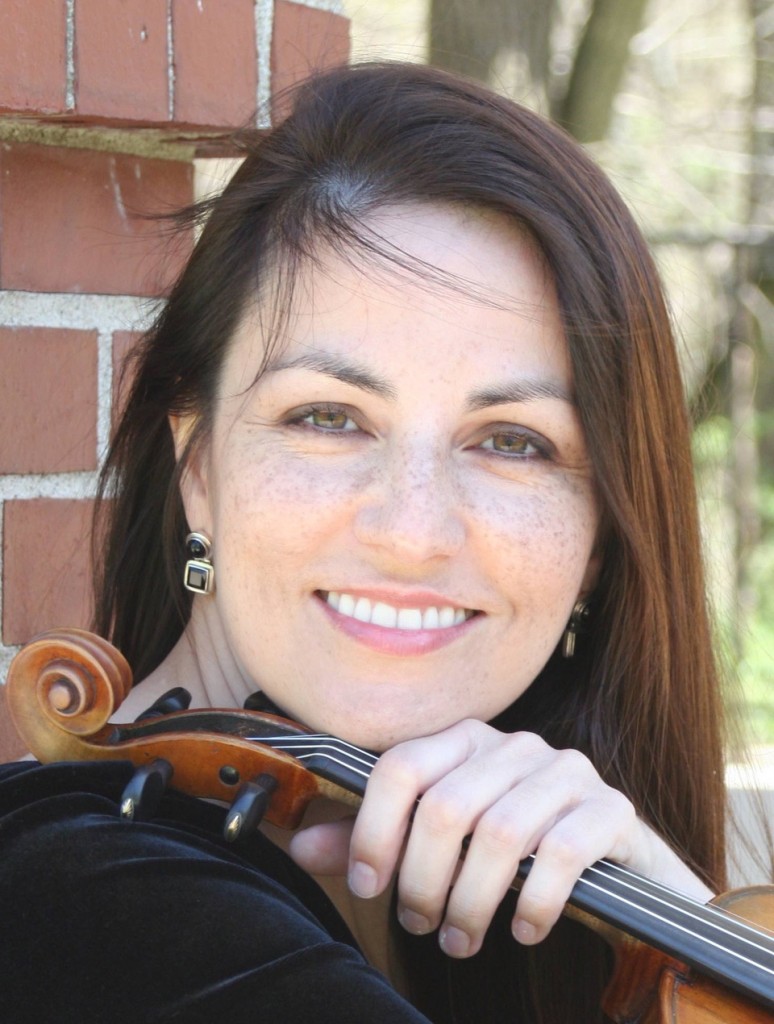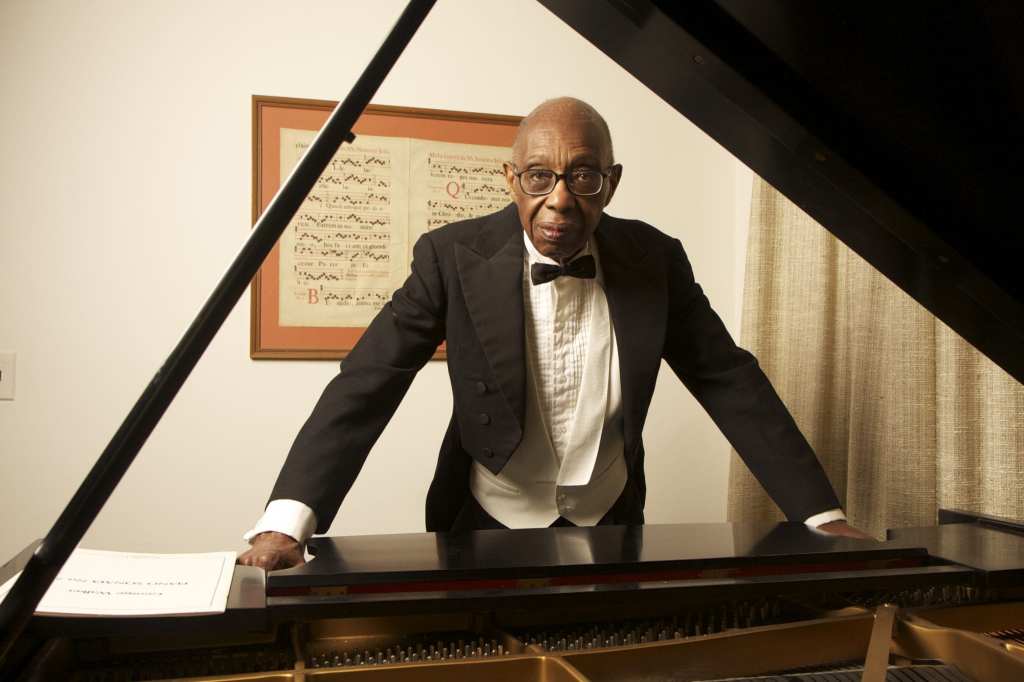Orchestra partners with Frequent Flyers Aerial Dance
By Peter Alexander April 22 at 4:12 p.m
Collaborations during a pandemic have to come in through the back door, as it were.
In the case of the Boulder Philharmonic and Frequent Flyers Aerial Dance, who are joining together for the orchestra’s final concert of the 2020-21 season, the musicians recorded Korine Fujiwara’s Suite from Claudel in one venue, and then the dancers performed to the recorded music in another venue. The resulting performance will be shown online at 7:30 p.m. Saturday, April 24.
It will remain available until Saturday, May 8. You may access the stream through the Boulder Phil Web page.
Originally written for string quartet, the three movements of the Suite from Claudel were arranged for string orchestra by the composer. To simplify COVID precautions, Boulder Phil music director Michael Butterman wanted to have an entire program for strings, who can wear masks while playing.
In addition to Fujiwara’s Suite, the program features the Lyric for Strings by George Walker and an arrangement of Beethoven’s Symphony No. 6 (known as the “Pastoral Symphony”) for string sextet.
Michael Butterman, music director of the Phil, noted that the orchestra has collaborated with Frequent Flyers several times in the past. “In this re-imagined season, I wanted to retain the community collaborations that have been a hallmark of our work as an orchestra,” he says.
Fujiwara’s Claudel was originally a ballet celebrating the life and work of Camille Claudel, a pioneering woman sculptor of the early 20th century. Butterman identified three pieces from the larger ballet that he particularly liked, and asked the composer if she would arrange those movements for full string orchestra.
He also shared the music with Nancy Smith, artistic director of Frequent Flyers. She agreed to choreograph the suite, and decided to incorporate some elements of Claudel’s story. The three movements are titled “In the Woman’s Studio,” “Waltz” and “Age of Maturity”; the last two are taken from names of two of Claudel’s best-known works.
Butterman had hoped to record the entire piece together with the dancers, but that proved impractical under pandemic conditions. Instead, the Suite was recorded with the rest of the musical program at Mountain View Methodist Church, and several weeks later the dancers recorded their performance at the Dairy Center. Putting them together, along with the entire musical performance, is being engineered by Michael Quam of Quam Audio.
Walker’s Lyric for Strings is one of the most performed string orchestra works of the 20th century. The first African-American composer to win the Pulitzer Prize, Walker was also the father of former Boulder Phil Concertmaster Gregory Walker.
Also titled “Lament,” the Lyric for Strings was composed in 1946 and dedicated to the memory of the composer’s grandmother. “It is a deeply felt work,” Butterman says.
“It’s a good connection with our current moment, elegiac but [with] a lot of consolation. There’s a lot of sorrow, but also hope and rays of optimism, so it seems like a piece that in addition to being beautiful to listen to, can say something to our current moment.”
For modern audiences, the most unusual piece on the program will be the sextet arrangement of Beethoven’s Sixth Symphony. In Beethoven’s lifetime, arrangements of orchestral works for small ensembles were common. In a time when there were no recordings and orchestral concerts were infrequent, such arrangements were made and sold for home performances of music most people would otherwise not be able to hear.
The Sextet arrangement was made by M.G. Fischer, an organist and composer who was Beethoven’s contemporary. It was published in the composer’s lifetime by Breitkopf & Härtel in Leipzig, one of the most important European music publishers. That original edition has now been reprinted, for anyone who wants to try this at home.
“A German orchestra shared this sextet version very early on in the pandemic,” Butterman explains. “Someone forwarded it to me and said, ‘Isn’t this great?’ And I thought it was.
“This captures quite well a work for full orchestra, but just with these six players. I wanted to have a masterwork or two on our season, and here’s a masterpiece of the full orchestral repertoire.”
Butterman says that the musicians enjoyed playing it, but found it challenging because they know it almost too well. “It’s kind of the same, but enough not that you really have to stay focused,” he says. “They’re busy all the time. They have to handle all of the things that they previously had to handle, but now they’re also given these other things to play, wind parts or whatever. It’s a tiring piece to play.”
Looking back over the past season, Butterman sees some good things that came out of the pandemic. “It’s been a year of experimentation and one that we’ve grown a lot in our understanding of how to share music with the public,” he says.
“There are some aspects that we’re going to take forward and continue to utilize in positive ways.”
# # # # #
Boulder Philharmonic, Michael Butterman, conductor
With Frequent Flyers Aerial Dance
- George Walker: Lyric for Strings
- Korine Fujiwara: Suite from Claudel
—Frequent Flyers Aerial Dance - Beethoven: Symphony No. 6 in F Major, op. 68 (“Pastoral”), arr. M.G. Fischer
Stream available at 7:30 p.m. Saturday, April 24
Pre-performance discussion at 7 p.m.
Tickets available here.
Note: Typos corrected 4/22/21.





